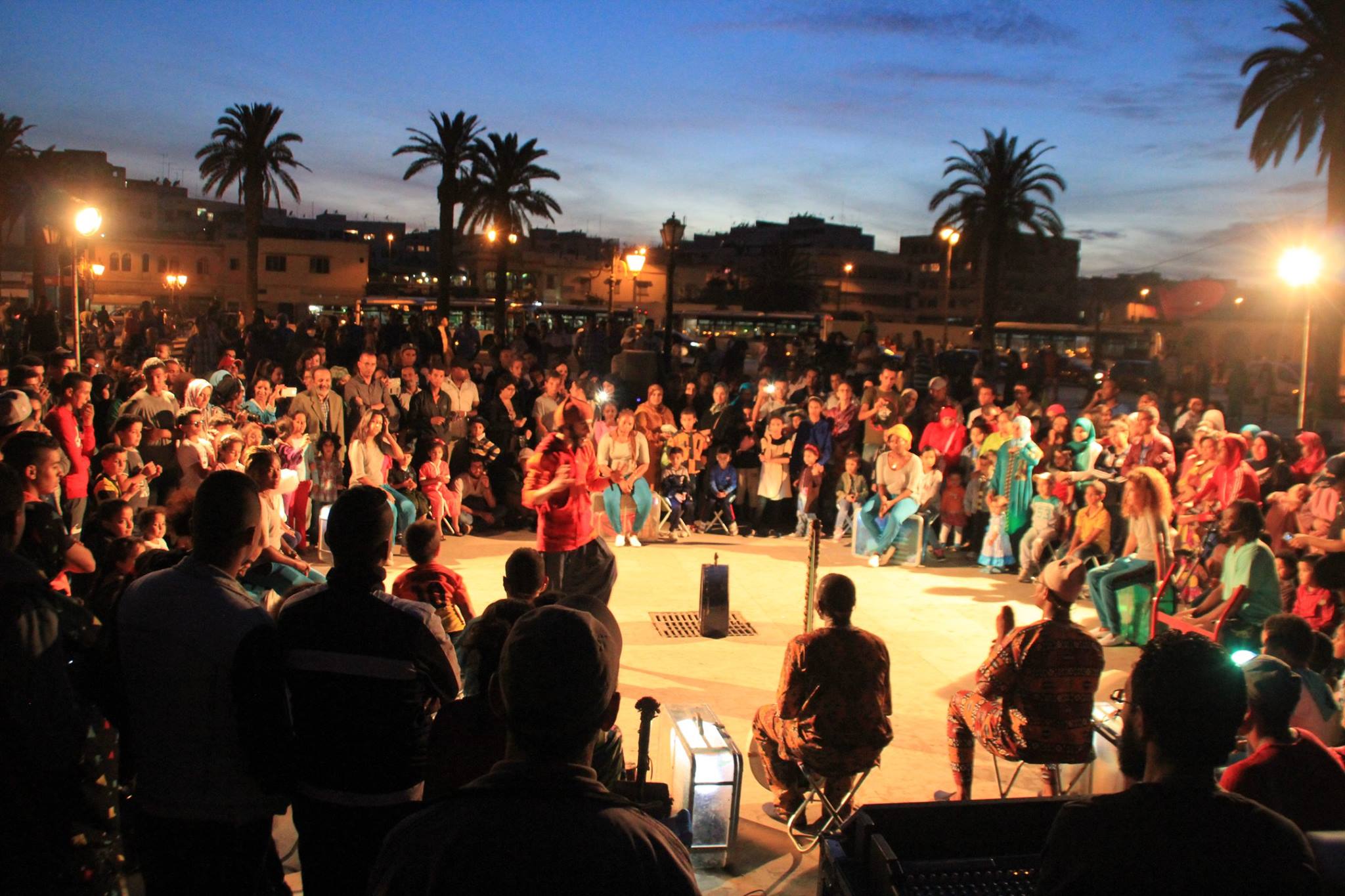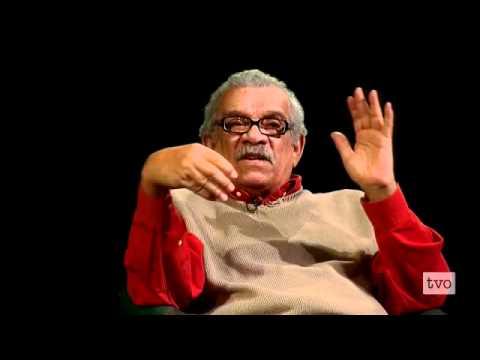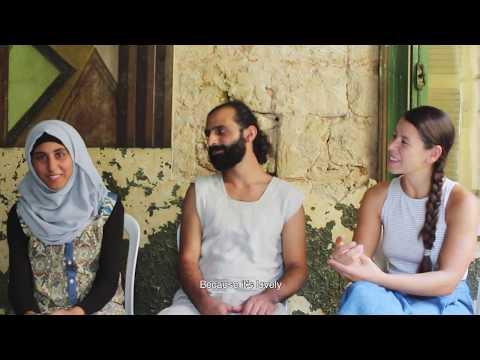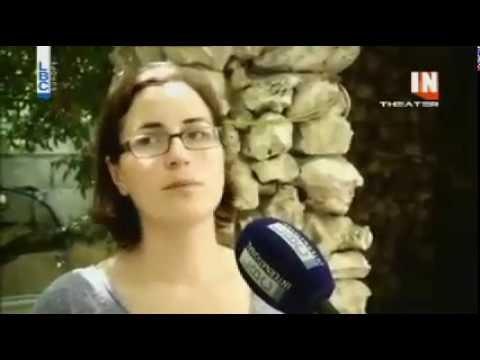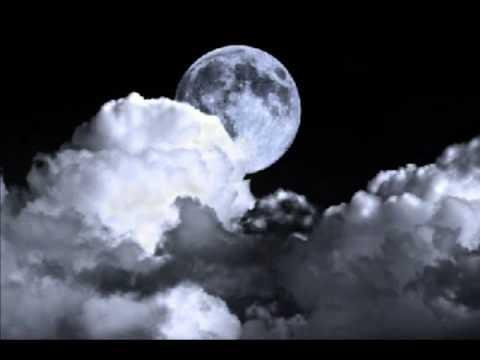تي جين وإخوته
يرتكز ديريك والكوت[note:1] في بناء هذه المسرحية على حكاية شعبية من سانت لوسيا، ويطورها لتصبح عن الجزيرة نفسها وتاريخها. إذ يطرح والكوت في هذا النص قضية الصراع ضد الاستعمار والإرادة وصراع الخير والشر، معتمداً على ذخيرة شديدة التنوع من الاستعارات الذكية والنُكَت والإيحاءات الإنجيلية، ليصبح القارئ أمام عملٍ حيويٍ لا تمنع سرعة إيقاعه التوقّف عند قضايا بالغة الأهمية.
كُتِب هذا النص عام 1957.
لمحة عن الترجمة
تُرجِم نص "تي جين وأخوته" ضمن ورشة تعاون فيها ممثلون محترفون مع ناشئين من مخيم شاتيلا للاجئين. وكان نتاج هذه الورشة عرضاً مسرحياً موسيقياً بالاعتماد على نص ديريك والكوت وآخر للكاتبة بليانا سربلويانوفيتش، تحت عنوان "عائلة تي جين".
شارك في ترجمة وتمثيل هذا النص:
عبد الكريم
علي
ميليا
هادي
فاطمة
إيمان
جميل
مرح
مراد
سهى
باول
الشخصيات
CRICKET صرصار الليل
FROG الضفدع
BIRD الطائر
FIREFLY اليراعة
TI-JEAN تي جين
GROS JEAN غروس جين
MI-JEAN مي جين
MOTHER الأم
BOLOM بولوم
FIEND, WHITE PLANTER, OLD MAN الشرير، المزارع، الرجل المسن
P R O L O G U E
Evening. Rain. The heights of a forest.
A CRICKET, a FROG, a FIREFLY, a BIRD.
On the left: a hut with bare table, an empty bowl, stools. The MOTHER is waiting.
FROG
Greekcroak,
Greekcroak.
CRICKET
Greekcroak,
Greekcroak.
[The others join]
FROG
[Sneezing]
Aeschylus me!
All that rain and no moon tonight.
CRICKET
القمر دائماً هناك يقاتل المطر،
الجو بارد لكن القمر دائماً هناك، Ti-Jean بالقمر كما تقول الحكاية.
[BIRD passes]
CRICKET
اسمع قبل أن تعود إلى مخدعك،
إن صَرّار الليل يحكي قصة،
قصة عن القمر.
FROG
If you look in the moon,
Though no moon is here tonight,
There is a man, no, a boy,
Bent by a weight of faggots
He carried on his shoulder,
A small dog trotting with him.
That is Ti-Jean
the hunter,
He got the heap of sticks
From the old man of the forest
They calling Papa Bois,
Because he beat the Evil Fiend,
God put him in that height
To be the sun’s right hand
And light the evil dark,
But as the bird so ignorant
I will start the tale truly.
[Music]
Well, one time it had a mother,
That mother had three sons.
The first son was Gros Jean.
That son he was the biggest,
His arm was hard as iron,
But he was very stupid.
[Enter GROS JEAN, a bundle of faggots in one hand, axe over his shoulder, moving in an exaggerated march to music. The creatures laugh]
FROG
The name of the second son,
They was calling him Mi-Jean,
In size, the second biggest,
So only half as stupid; now,
He was a fisherman, but
Always studying book, and…
CRICKET
Mi boug qui tait cooyon!
(Look man who was a fool!)
[Roll of drums. Comic quatro, martial]
[Enter MI-JEAN from the opposite side, carrying a book in one hand and a fishing net over his shoulder. Halfway across the stage he flings the net casually, still reading]
BIRD
How poor their mother was?
[Sad music on flute]
FROG
Oh that was poverty, bird!
[Light shows the hut]
[The music stops. The brothers GROS JEAN and MI-JEAN put their arms around each other, and to heavy drums tramp home]
CRICKET
يا حرام شو مسكينة هل أم.
FROG
Aie, cricket, you croak the truth!
Near where the mother was,
Across the wet and melancholy
Mountain where her hut was, O God,
The Evil Fiend used to live!
[Crash of cymbals. Shrieks, thunder. The animals cower as the FIEND with his troop of fiends, the Werewolf, the Fiendesse, the BOLOM, somersault and dance across the stage. The sky is red]
FIEND
Bai, Monstre là manger un ’ti mamaille!
(Give the Fiend a child for dinner!)
FIENDS
Un, deux, trois ’ti mamaille!
(One, two, three little children!)
[They whirl around the stage leaping, chanting, then as suddenly go off. Roar of Fiends offstage]
[Sad flute, as the light comes up on the three sons around the knees of the old woman]
GROS JEAN
One time again it have nothing to eat,
But one dry bread to break;
I went out to chop some wood
But the wood was too damp,
MI-JEAN
رحت اتصيد بس لما وصلت لقيت إنو ما معي طعم
[Rising solemnly]
أحسن طعم لصيد السمك هو إنو تتصيد سمكة بسمكة. ف...
...
ديريك والكوت (1930-2017): كاتب مسرحي وشاعر وناقد من جزيرة سانت لوسيا، التي كانت مستعمرةً بريطانيةً حينها. عُرِف والكوت بأعماله التي صوّرت الثقافة الكاريبية وتفحصت آثار الحقبة الاستعمارية والعبودية فيها. ومن أشهر هذه الأعمال مسرحية "حلم على جبل مونكي" وقصيدته "أوميروس" التي نال عنها جائزة نوبل للآداب عام 1992.
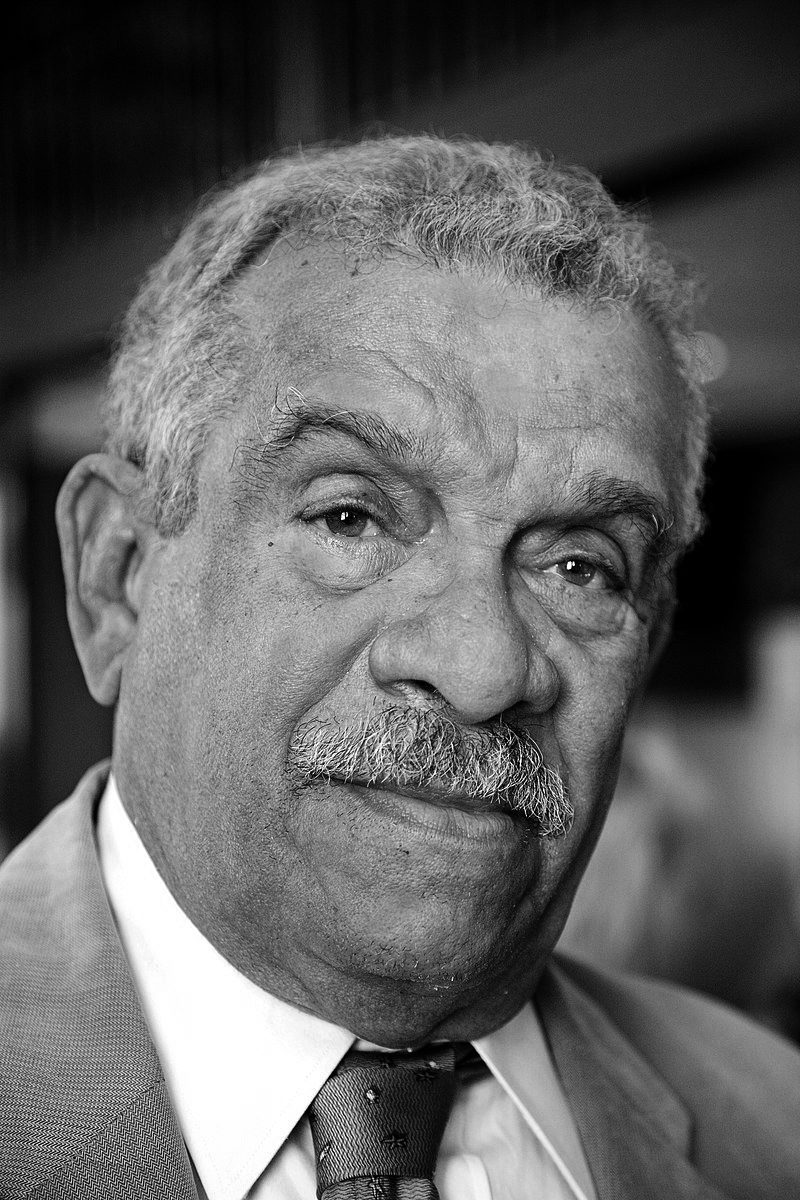
صورة لبيرت نينهويس
